Growing research has proven that adverse childhood experiences’ impact on mental health can be extremely negative and harmful. Let’s learn how we can tackle these ACEs and heal our minds.
Contents
Several studies and research[1][2][3][4] show that the adversity experienced in childhood can affect a person during his adult years. The challenges that one faces in school or home in the form of abuse can lead to stress and anxiety that proves to be toxic in adulthood.
These “challenges” have collectively become known as adverse childhood experiences or ACEs and can be identified as mental and emotional triggers for an unhealed person.

It is okay to accept that it is very human to have unhealed emotional wounds. Most human beings deal with some or the other traumatic experiences in their childhood. However, suffering is optional if we learn about our adverse childhood experiences, process the same, and release the wounds.
Once we can get past the triggers and the sadness surrounding the background, it does get better. So, the first step to your mental and emotional healing is to understand your ACEs and their impact on mental health.
You might like to read: Caregivers Guide to Providing Emotional Support
What Is an Adverse Childhood Experience?
In simple terms, adverse childhood experiences or ACEs can be described as traumatic experiences, such as abuse, neglect, or anything that had an intense negative impact on a child’s brain.
ACEs affect the development of a child’s brain and lead to various chronic illnesses, mental disorders, addictions, and other problematic behaviors. ACEs happen to children below 18 years of age, but their impact can be seen in later stages of adulthood.
What qualifies as ACEs?
The first and foremost thing to understand about ACEs is that a child doesn’t have to be exposed to extreme trauma or abuse to qualify as an ACE victim.
Something as simple as a child being yelled at for no reason can also affect their brain development because the fear settles in. Thus, even everyday life experiences can be pretty traumatic to their sensitive nature. Some adverse childhood experiences include –
- Physical abuse (beating, kicking, burning, biting, etc.)
- Emotional abuse (control, manipulation, shaming, blaming, silent treatment for no reason, etc.)
- Mental abuse (accusing, humiliating, controlling, shaming, etc.)
- Sexual abuse (touching a child inappropriately, touching, kissing, etc.)
- Emotional neglect
- Physical neglect
- Death of a family member
- Natural disaster
- Bullying
- A family member treated violently
- Substance abuse in the house
- Household mental illness
- Parent’s divorce
- Incarcerated family member
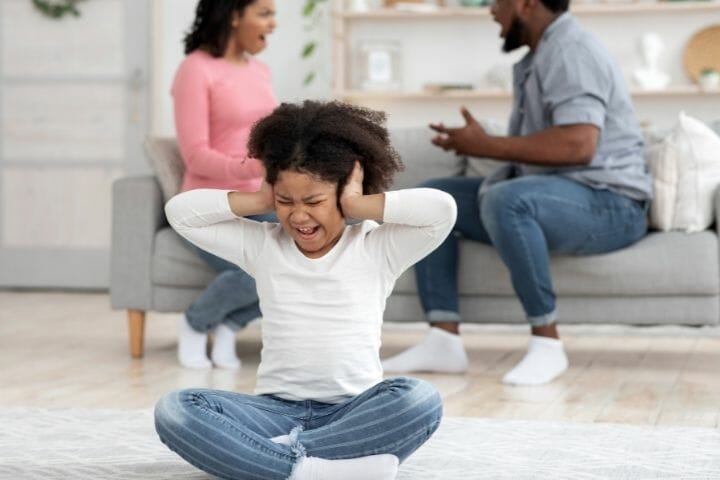
ACEs and mental illnesses
The CDC-Kaiser Permanente Adverse Childhood Experiences (ACE) Study is one of the most extensive and widely acknowledged investigations in child abuse and traumatic experiences.
The study observed that the more a child experiences trauma at an early age, the greater is the risk for negative consequences taking place in adulthood. Several publications have affirmed the above research that the more frequent the ACEs are in a child’s life, the more damage to their brain will be done.
The result of such abusive experiences leads to co-occurring illnesses, chronic disorders or conditions, substance abuse, drug addiction, and in worse cases, suicidal thoughts or death.
What Should You Know About Trauma?
To begin with, about 70 percent of adults[5] and approximately two-thirds of children[6] in America have suffered some form of trauma.
The best way to learn if someone has gone through some form of trauma is to notice if they are anxious, apprehensive, or overly reactive in certain situations. Trauma makes a person remain in a state of hypersensitivity and leads to impulsive behaviors.
So, what exactly is a traumatic experience? Well, it is the brain’s response to an intensely emotional or psychological event. Trauma results from a disturbing event where the event itself may have passed but whose lasting effect remains in the person.
The debilitating effect of trauma remains with the person for a long time, especially if it remains untreated. Sometimes, the impact of the trauma is so intense that they interfere in the personal life of the survivor.
People who deal with traumatic incidents may show the following signs –
- Low self-esteem or confidence
- Prolonged irritability and sadness
- Eating disorders
- Dramatically change of mood
- Impulsive behavior
- Nightmares or flashbacks of the traumatic event
- Trauma-induced phobias
- Difficulty maintaining relationships of all kinds, that is, romantic, personal, professional, etc
- Intentional avoidance of visiting places, people, and situations that may induce trauma
- Constant fear, anxiety, and nervousness even when there is no threat
- Depression or irrational fears
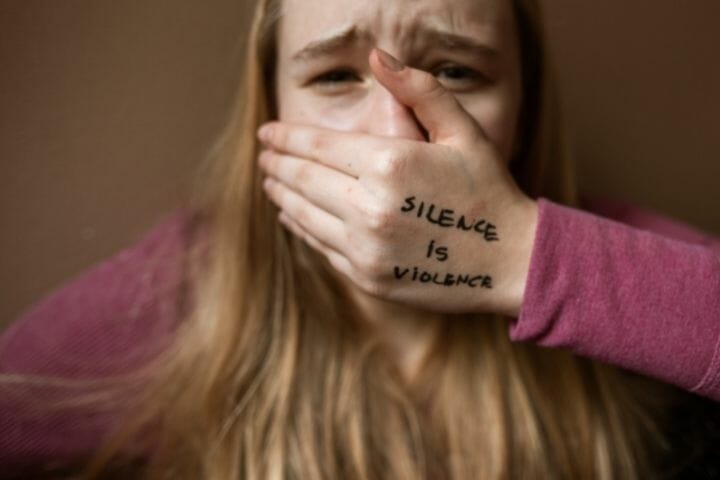
Various forms of trauma can affect the mental health of the victim. While the traumatic incident doesn’t have to be an intense one for the child to develop anxiety and other issues, here are some events that may impact the mental health of a child –
- Parental neglect
- Sexual assault
- Emotional or verbal abuse
- Accidents
- Natural disasters
- Violence of any kind
- Severe injuries
- Bullying
- Harassment or humiliation, etc.
Does trauma negatively impact the brain?
Trauma changes the brain of a child who suffers ACEs. The primary function of our brain is to keep us safe. When we experience trauma, our brain works overtime to keep us healthy and safe.
The thing about dealing with negative experiences is that our brain, to keep us safe, continues warning us about the threat that has happened a long time ago and thus, changes the way a healthy brain would function.
When we experience trauma (especially as a child), the nonessential systems of the brain are shut down, and the sympathetic nervous system is activated – this means that the brain releases hormones that activate the fight or flight response.
After the threat passes, the parasympathetic nervous system is reactivated, but this response traps the brain into survival mode. You can quickly notice that traumatized children choose to live in survival mode because they have suffered some trauma in the past and are programmed to believe that they are constantly under threat.
Trauma can, thus, bring imbalance in the chemical structure of the brain, which severely affects the way we function and regulate emotions.
The response to a traumatic event varies from person to person. Some people have a low-stress tolerance, while others can take on extensive hours or days of stressful situations.
If they have gone through some mental trauma, one can easily confirm, looking at a person’s ability to regulate emotions.
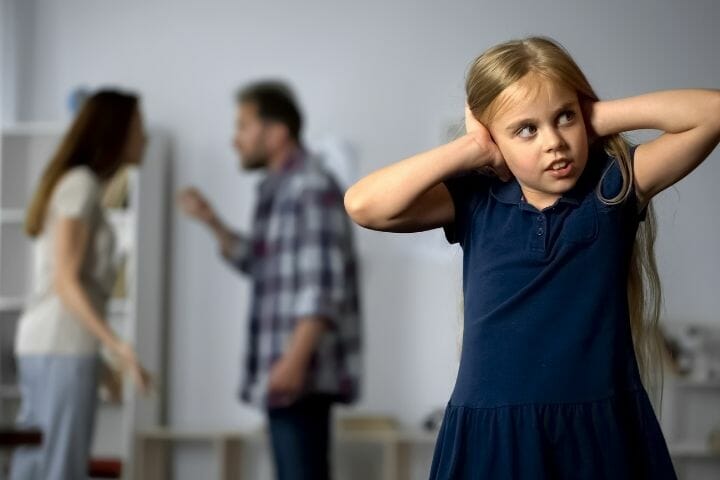
How do traumatic changes in the brain affect a person?
The traumatic changes that the brain goes through lead to a challenging life. Even mundane tasks seem like a mountain one has to climb every day. The high level of stress, overactive amygdala, shrunken hippocampus, and less active prefrontal cortex can impact our mental health intensely.
As a child, one might not notice the effects that wreck our brain and body, but as an adult, one can become aware of all the negative thought patterns that we have and learn the tricks and techniques to break them and choose a happy and positive life.
What are the emotional responses in an adult to childhood trauma?
Well, it can cause the following conditions, issues, or disorders in our brain and seriously impact our mental health –
- Anxiety
- Depression
- Insomnia
- Poor focus and concentration
- Nightmares
- Irritability
- Mood swings
- ADHD
- Indecisiveness
- Memory issues
- Living in fear
- Flashback
- PTSD
- Difficulty in learning new things
- The problem in expressing one’s emotions and feelings
- Tightened muscles
- Communication problems
- Chronic fatigue and more
One must also understand that when we deal with mental trauma as a child, it takes a toll on our relationship and daily chores. When the brain constantly feels surrounded by a threatening situation, it puts in all the energy to keep the body safe and sound.
Thus, it uses up all the energy that would otherwise help run the chores. As a result, we feel fatigued and exhausted throughout the day, even when we have not done anything.
The mental impact of trauma on one’s brain also brings a lot of imbalance and difficulty in maintaining relationships and friendships, leading to misunderstanding and confusion since one cannot accurately understand how others feel or think about them.
It can be daunting for a person suffering from deteriorating mental health to even get up from bed daily, and thus, they should seek medication as soon as possible.
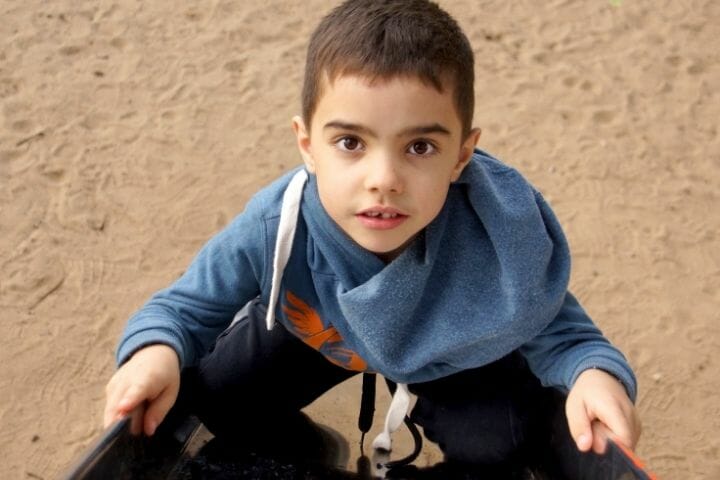
How Do ACEs Impact the Brain of a Child?
The whole point of ACEs comes down to stress and the inability to process the same. Yes, stress is a natural response to discomfort. However, the problem arises when stress becomes a natural state of one’s mind; that is, the stress hormone cortisol is continuously released to survive the (perceived) threat situation.
Released by adrenal glands and adrenaline, cortisol, when released in a balanced amount, is anti-inflammatory and anti-anxiety in nature. It also contributes to relaxing or toning down the body’s immune system.
If the stress becomes chronic, cortisol turns inflammatory and increases the level of pain in a person, even if it is not present in the body anymore.
However, it psychologically affects the person to feel an increased amount of pain, which results in conditions like anxiety, depression, brain damage, and more, especially in a child because they are so vulnerable and sensitive in their bodies.
The limbic system of the brain, which includes the amygdala and hippocampus, as well as the prefrontal cortex, gets most affected at the time of processing or experiencing trauma. According to research, chronic stress leads to the decrease or shrinkage of the hippocampus and prefrontal cortex while enlarging the amygdala [7].
Three regions of the brain that are negatively impacted by ACEs
Let’s learn more about the three main brain areas that deeply impact mental health in a traumatized person- the amygdala, hippocampus, and prefrontal cortex.
Amygdala is activated and triggers a fight or flight response.
The amygdala is an almond-shaped structure located in that part of the brain which controls emotions, including anger and fear. Traumatic stress over-activates the amygdala, and our response to a traumatic or threatful situation becomes intense and, if not taken care of, continues to respond the same way, even though the threat has passed.
Since our brains do not understand whether the threat exists or has passed, many of us continue having nightmares and flashbacks of a traumatic incident. Sometimes, these dark and intrusive thoughts lead to insomnia for years.
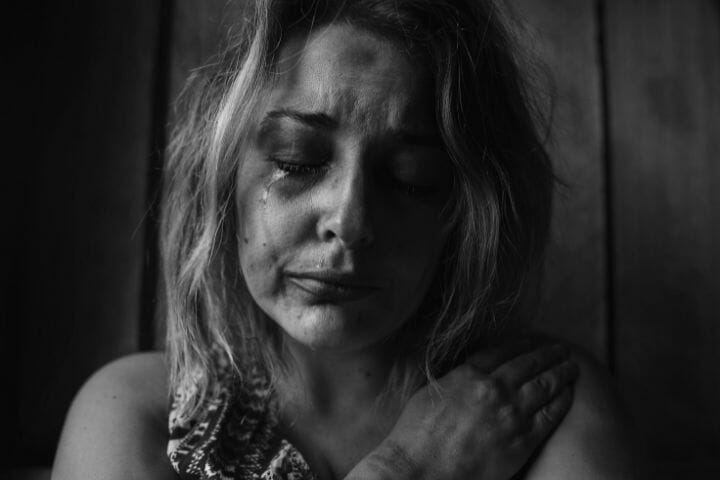
An overactive amygdala can also cause chronic stress, inability to calm oneself, irritability, heightened fear, anxiety, etc. One can also feel a flood of emotion, feelings of aggression and anger, panic attacks, and more because of an overactive amygdala.
“People with overactive amygdala are perpetually stressed, and this can lead to debilitating anxiety,” says Dr. Sanam Hafeez Psy.D., a neuropsychologist to Bustle.
Many people carry this stress for the rest of their lives without realizing the body’s functioning. This is why it is essential to get past our fears and darkness and get all the help we need to live a happy and healthy life because we all deserve to.
The volume of the hippocampus is decreased.
Chronic stress and untreated trauma can shrink the hippocampus, a part of the brain that is responsible for storing and retrieving memories. The negative impact of the decreasing hippocampus volume makes a person unable to differentiate between the past and the present.
When we are in a similar environment where we experienced our trauma, we feel the same anxiety, fear, and disturbance, even if the situation passed away many years ago.
This makes us live in a hypervigilant state of mind for a long time. We feel constant stress and discomfort even though there is no danger or threat around us.
The hippocampus’s shrinkage also makes us repeat the old experiences that cause fear and anxiety and don’t allow us to create new and happy memories. Thus, someone who lives in a constant state of stress or trauma suffers from intense emotional activities and cannot see the positive side of life.

Decreased functionality of prefrontal cortex
The primary function of the prefrontal cortex is to reason and regulate emotions, control impulses, and solve problems. However, studies have proven that chronic stress or traumatic experiences can slow down this function and negatively impact one’s ability to reason, manage emotions, learn new things, take in further information, and more.
The highlight is that since our logical thinking gets confused due to the traumatic experience, we cannot control our fear, even when we are entirely aware that there is no threat surrounding us.
The survivor feels continuous fear and is on high alert, thus, leaving no scope for relaxation. They might get stuck in negative thought patterns for years until they understand what’s going on with them. To a survivor, the whole world seems frightening and full of negative experiences, so they lose their ability to trust the world or themselves.
“Trauma can have a significant impact on the neurochemical system and lead to long-term changes in the way that an individual’s brain functions, “Kira Vredenburg LMSW, a therapist at addiction treatment center Sierra Tucson, tells Bustle.
People also suffer from lack of concentration, inability to focus, failure to be fully and completely present in the moment, zoning out, feeling disconnected from one’s emotional body, and more.
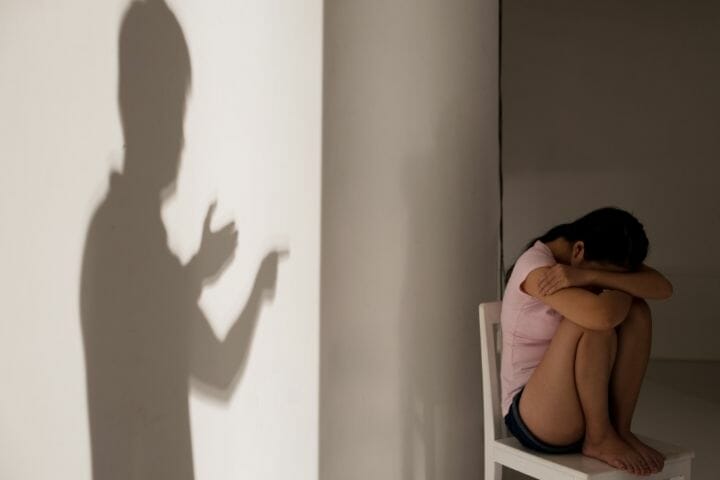
What does the research say?
“Psychological trauma is not only mentally and physically exhausting; it can also have long-lasting effects on the victim’s brain,” Dr. Sanam Hafeez Psy.D., a neuropsychologist, tells Bustle.
According to a 2021 study published in Revue Neurologique, there are two neurological areas in the brain, namely, cognitive and defensive, where traumatic experiences rear their ugly head. These areas are responsible for how your brain functions around threat or regulate your emotions, work with memory, etc.
As per the American Academy of Pediatrics’ paper, physical and mental trauma interferes with the normal maturation of a child’s brain.
Trauma can, thus, significantly alter the primitive parts of the brain and control how a person reacts or responds to a situation emotionally. Therefore, a person’s ability to regulate their emotions gets affected and, in some cases, shuts down completely.
A study published in The Journal of Head Trauma Rehabilitation, 2020, concluded that military veterans with enlarged amygdala have post-traumatic stress disorder (PTSD) more than those with the normal amygdala.
In the same way, a study published in the 2015 issue of the Neurobiology of Stress observed that chronic stress and trauma could weaken the prefrontal cortex’s ability to hire and fire neurons.
Similarly, research published in Nature Communications in 2020 revealed that trauma strengthens the relationship between the hippocampus and amygdala, which is why people remember the potential triggers related to the traumatic events, even though they do not remember the event’s details.
Research, trials, and studies in the medical world continue to conclude and observe that childhood trauma can lead to mental and emotional issues. Thus, one should always be ready to seek therapy and get on medication to help them recover from the state of trauma that has already passed to move forward.
It is important to move away from mental health issues due to a traumatic childhood experience, sadly, because it has stayed with us for a long time and remains untreated even after so many years.
You might like to read: Age And Mental Health- All You Need To Know
How To Heal From ACEs and Childhood Trauma?
Our lifestyle and schedules are constantly rammed with high anxiety and stress in today’s world. With workload and personal responsibilities, we believe it is very typical to release cortisol now and then.
However, chronic stress without taking time to relax is one way to prevent childhood trauma and damage your brain further. So, you need to understand that ignoring your anxiety, disruptive behavior, constant stressing over the smallest of issues, impulsiveness, depression, irrational fears, etc., can lead to some irreversible dysfunctional personality.

The good news is that you can 100% rewire your brain and form new neural networks to leave the past in the past and create a brighter and happier future. Yes, it is possible to break the cycle of chronic stress and be completely present at the moment.
Several trauma-informed practices can help children (under the guidance of a therapist and supported by caregivers) to rewire and repair their brains. In the next section, we shall talk about the same.
Types of therapy to heal from ACEs and childhood trauma
While going through ACEs and other traumas during your childhood was not your fault, healing yourself is undoubtedly your responsibility. Thus, here are some ways to help you recover from ACEs and live every day and happy life.
Counseling
The biggest drawback of childhood abuse is that you blame yourself for all the wrongs done to you and internalize the shame and guilt. This pattern does not allow you to move forward in life and live the life you deserve.
The best way to heal the same is to understand that it was not your fault and work through your feelings to develop high self-esteem and confidence.
Addressing your trauma is the first step to working through your emotions, and a good therapist or counselor can help you with it, especially if you are a child. It is, however, the responsibility of the parents or caregivers to find a good therapist who is high on empathy and low on judgment.
Once your therapy is over, you will notice many positive changes in your behavior and thought process. You will feel lighter, calmer, more composed, less stressed, and it will be a completely new beginning for you.
Medication
The next best option is to take the prescribed medicine for your anxiety, depression, ADHD, and other brain issues. Sometimes, even the therapist/counselor of your child will recommend the same, and you shouldn’t avoid having it, nor should you feel bad about it.
Therapy, along with medication, can accelerate the healing process for you or your child and help them embrace their happy and healthy body once again. It is recommended to continue taking your medication without stopping to see your counselor or therapist.
Many people take these medicines even when they have not been recommended or advised by a medical professional. It is important to listen to your counselor and take the medicines only as prescribed and until the therapist feels that you continue to need them.

Meditation
Believe it or not, meditation has the power to change the structure of your brain. There is no limit to how powerful you can become with regular meditation.
Meditation helps you gain control over your negative thought patterns and dismantle it before exposing your mind to positive thoughts. Even complex mental health issues rooted in childhood can end and be replaced with a positive outlook.
While it can be challenging to make a person below 18 years of age sit and meditate, it isn’t entirely impossible. Your child has gone through trauma at a pretty young age, showing in their everyday lives. Thus, you need to convince them/make them sit in meditation for about half an hour every day.
It is also your responsibility to find the meditation type that suits you or your child the best. For example, you can go for loving-kindness meditation, in which you show and feel compassion to yourself and other people.
Forgiveness is not for the weak, and the deeper the wound is, the more it will be difficult for a person to forgive and let go. However, the only way to move forward is to ignore, even if they never apologize to you – this is for your mental peace and emotional growth.
Thus, this meditation is for everyone because we all struggle with some form of emotional wound and the inability to forgive others. So, begin your meditation by sitting at a sacred spot and taking deep breaths.
Once you feel grounded, bring forth an image of yourself, and either speak loudly or inside your heart, “I am loved, and I love too.” “I am filled with love and kindness.” “May I be healthy and strong,” and other affirmations like this.

Journaling
“Over the next four days, write down your deepest emotions and thoughts about the emotional upheaval that has been influencing your life the most. In your writing, let go and explore the event and its effects.
You might tie this experience to your childhood, your relationship with your parents, people you have loved or love now, or even your career. Write continuously for twenty minutes a day,” says James Pennebaker, Ph.D., a psychology professor at the University of Texas at Austin.
Remember, simply writing down your experience and how it made you feel is the path to recovery and healing. And yes, self-healing is a great way to come out of any and every kind of trauma. Write to heal and write at least two pages daily, and soon, you will understand the importance of journaling and creating a sacred mental space for your brain as well.
Neurofeedback
Electroencephalography (EEG), also known as neurofeedback, is a modern method to hire the neurons that create positive emotional patterns and fire those carrying trauma and negative emotions.
“Neurofeedback can help to bring some of the brain networks that are interrupted by trauma back online,” confirms Ruth Lanius, MD, Ph.D. and the director of the post-traumatic stress disorder research unit at the University of Western Ontario in Canada.
Neurofeedback is associated with brain waves, and this therapy should be done only in the presence of an experienced professional.

Somatic experiencing
The traumas and negative experiences in humans are stored in their brains and nervous system. Unlike animals, humans get stuck in the loop of trauma and dissociate themselves from their bodies.
In the process of somatic experiencing, they are taught to slowly and gently reintegrate their body without having to live their traumatic experience, even in their head. It requires the survivor to get in touch with their bodies through various exercises and workout routines.
Your therapist shall recommend the same to you, and repetitively doing the exercises eventually allows the body to release the trauma. It is one of the most common therapies recommended by experts to their patients and is entirely safe to undertake by a child. It is safe, simple, and effective – you will see it once you give it a try and complete the course.
Bodywork and movements
Bodywork is one of the most powerful and, thus, recommended ways to drive trauma out of your body is to get in touch with it. Human communication is assertive, and thus, activities like professional massages have proven to ease the human body by releasing cortisol and producing serotonin, dopamine, GABA, and adrenaline.
Therefore, it is essential to get at least two massage sessions with a professional with whom you feel comfortable giving your body the attention it deserves.
About the movement, you can indulge in anything that requires you to move and sweat – yoga, workout, Pilates, Tai Chi, Qigong, Zumba, dancing sessions, boxing, etc.
Yes, when you move your body, especially with intentional actions, you can ultimately drive away negative energy and thought processes from your body. This works like magic, which is why people with high energy do not skip their workouts at all.

There is no one way to heal.
According to Dr. Hafeez, “There is no specific way to deal with the damage done to the brain by psychological trauma.” It depends on the severity of one’s trauma that decides their treatment. However, it is essential to see a mental health professional avoid further deterioration of your brain in any case. A healthy brain is necessary to have a healthy body and a peaceful life.
You might like to read: Tips For Caregivers Of Mental Health Patients
A Few Final Words
The human spirit is more vital than anything else in the world. Thus, if your child has been going through the struggles of trauma or you, as an adult, are facing the demons of ACEs, then believe that there is nothing that can stand in the way of your willpower.
People go through the most life-shattering experience and still come out as a warrior to tell their story – and you are no less than anyone. So, promise yourself to seek all the help that you need to reach where you deserve in life.
It is never too late to rewire your brain, re-organize your thoughts, and redeem your life. We hope this article has inspired you to take the first step to help alleviate your past traumas and negative childhood experiences. If you have queries about any of the content, feel free to drop us a line, and we will get back to you with an answer. Also, if you liked the content, please share the article with those who might also be in need of similar information.
References:
[1] Adversity in childhood is linked to mental and physical health throughout life | The BMJ
[2] Childhood adversities and adult psychopathology in the WHO World Mental Health Surveys
[4] InBrief: The Impact of Early Adversity on Children’s Development (harvard.edu)
[5] Trauma-infographic.pdf (thenationalcouncil.org)
[6] Understanding Child Trauma | SAMHSA[7] Stress effects on the hippocampus: a critical review
